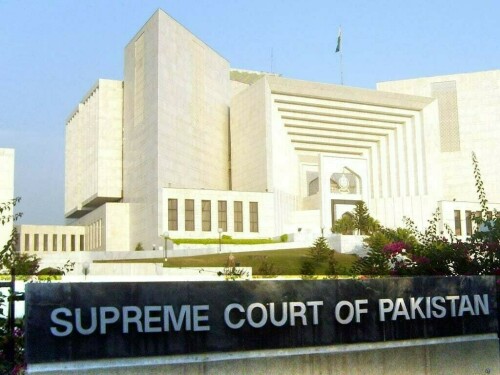By: Kashif Nawab
On June 19, 2014, Pakistan’s Supreme Court, under the leadership of former chief Justice Tassadaq Hussain Jillani, delivered a landmark judgment that significantly bolstered the protection of minority rights in the country. This decision is considered a pivotal moment in Pakistani legal history, reinforcing the principles of equality, non-discrimination, and religious freedom as enshrined in the nation’s Constitution.
The ruling stemmed from a suo motu action by the Supreme Court in response to a tragic bombing of a church in Peshawar in 2013, which claimed over 80 lives. This incident underscored the persistent threats and discrimination faced by religious minorities in Pakistan, prompting the Court to address broader issues related to their protection.
At the time of the judgment, Pakistan was dealing with rising sectarian violence and religious intolerance. Minority communities, including Christians, Hindus, Ahmadis, and Sikhs, frequently encountered persecution and systemic discrimination. Despite existing legal protections, enforcement was often inadequate, leading to widespread impunity and injustice.
Justice Jillani’s judgment introduced several critical measures to enhance the protection of minority rights: the establishment of a special police force dedicated to safeguarding places of worship for minorities, the formation of a National Council for Minorities to oversee the implementation of minority rights and address grievances, the revision of school curricula to promote religious tolerance and social cohesion, the implementation of job quotas for minorities in government services, the protection of properties belonging to minority communities to prevent illegal occupation and encroachment, and stringent action against hate speech, including monitoring media content to prevent incitement to violence and discrimination against minorities.
The judgment was widely acclaimed as a significant advancement for minority rights in Pakistan. It provided a comprehensive framework for addressing both immediate security concerns and long-term socio-economic challenges faced by minority communities. The ruling reaffirmed the constitutional commitment to equality and non-discrimination, emphasizing the state’s duty to protect all citizens regardless of their religious beliefs. The directives led to notable policy changes, such as the creation of the National Council for Minorities, which provided a dedicated mechanism for addressing minority issues at the national level. Revising school curricula aimed to foster a more inclusive and tolerant society by eliminating biased and discriminatory content. The formation of a special police force to protect minority places of worship addressed the urgent need for enhanced security, providing a sense of safety to minority communities.
Despite the progressive nature of the judgment, its implementation faced several obstacles. Bureaucratic inertia, lack of political will, and societal resistance hindered the full realization of the Court’s directives. Local authorities were often slow to act, and the necessary resources were not always adequately allocated. Changing societal attitudes proved to be a more formidable challenge, requiring sustained efforts beyond legal reforms, including public awareness campaigns and engagement with community leaders. Critics also noted that enforcement mechanisms were weak, with the special police force and the National Council for Minorities needing more resources and authority to be effective.
Justice Tassadaq Hussain Jillani’s judgment on June 19, 2014, stands as a significant milestone in Pakistani jurisprudence. It showcased the judiciary’s proactive role in safeguarding constitutional values and protecting vulnerable communities. While implementation challenges persist, the judgment laid a solid foundation for promoting religious tolerance and equality in Pakistan. The ruling highlighted the importance of not only enacting legal protections but also ensuring their effective implementation. It underscored the need for comprehensive reforms to address both immediate security concerns and long-term socio-economic disparities faced by minority communities. This landmark judgment remains a symbol of the commitment to justice, equality, and human dignity in Pakistan, reminding society of the importance of protecting its most vulnerable members. By advancing minority rights, Pakistan takes a crucial step toward realizing its constitutional ideals and fostering a more inclusive and harmonious society.



Somebody essentially help to make significantly articles Id state This is the first time I frequented your web page and up to now I surprised with the research you made to make this actual post incredible Fantastic job